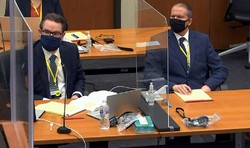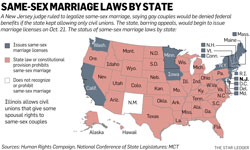On Feb. 24, 2022, The Russian Federation invaded the sovereign state of Ukraine. Prior to this, there were weeks of a significant buildup of troops along the Belarussian and Russian border with Ukraine.
Why did this happen? The leadership of the Russian Federation, including President Vladimir Putin and Foreign Minister Sergey Lavrov, have cited the expansion of NATO, the North Atlantic Treaty Organization, as the reason to secure its eastern border.
However, the decision to invade has had a counterproductive impact, as neighboring Finland and Sweden have applied to join NATO in the wake of the invasion.
Furthermore, in late 2013 and early 2014, the Russian-backed government in Ukraine was overthrown in the Maidan Protests. These protests were after the former President, Viktor Yanukovych, sought closer ties with Russia instead of the rest of Europe.
Shortly thereafter, the Russian Federation annexed Crimea. Sevastopol, the main port in Crimea, sits on the Black Sea as a major trading hub; in the Russian world, it is known as a “warm water port.” The Russian state views controlling Sevastopol as instrumental to its national interests.
With the annexation of Crimea came the War in Donbas. Two groups of separatist insurgents backed by unmarked Russian troops and concentrated in Donetsk and Luhansk began to rebel. Until Feb. 24, this conflict engulfed the national consciousness of Ukraine.
During the War in Donbas, the current President of Ukraine, President Zelensky, was elected. At the voting booths in 2019, President Zelensky won the office with 73 percent of the vote.
In October, Zelensky’s approval rating was at a low of 24.7 percent, according to the Wilson Center. This was due to various blunders he made, such as promising an end to the War in Donbas while not providing any roadmap.
As of today, Zelensky’s approval rating is at a high of 91 percent, according to iri.org. This can be attributed to Zelensky’s sociable personality and his devotion to Ukraine. When Kyiv was being bombed, he did not flee and instead stayed with his immediate cabinet, dawning military fatigues, meeting with the top officials of foreign governments around the world, and even speaking at length to the United Nations and NATO.
President Zelensky is a significant figure in Eastern European politics. But what does the rest of Eastern Europe think about the war in Ukraine?
The Baltic States consist of Estonia, Latvia, and Lithuania. Lithuania is a state bordering Belarus and the Russian exclave of Kaliningrad. These states, historically influenced by Russia, regained independence in 1991 from the Soviet Union.
In-between the border of Lithuania and Belarus sits a strip of land known as the Suwalki Gap. The Suwalki Gap is viewed with significant strategic importance by both the Russian military and the combined armed forces of NATO. Whoever controls this gap controls access to the Baltic States west of Belarus.
When the war in Ukraine broke out, Lithuanians were very worried due to their aforementioned approximation to Russia and Belarus.Rytis Brazdeikis, a student at Vilnius University in Lithuania, said, “When Russia invaded Ukraine, our phones blew up. We went to fill up our gas tanks.” Karolis Zlioba, a native Lithuanian added, “My generation was born after the end of Soviet rule. We don’t know what it is like to live under a Soviet government, and the freedoms we have now we don’t want to give them up.”
Lithuania isn’t the only country that borders Belarus or Russia. Hungary, a small state in the middle of Europe, also borders Ukraine and has accepted thousands of refugees.
Jimmy Szabo, a family member of a student at Monmouth who left Hungary in 1957 after the Revolution, gave his thoughts on what Hungary should do regarding the war. He said, “Hungary should keep doing what it is doing and stay out of it.”
Hungary’s acceptance of Ukrainian refugees reinforces the relationship between Hungary and Ukraine, as well as Hungary’s membership in NATO and its military support of Ukraine.
The effects of the war have had ripples all throughout Europe, especially in the former Soviet-aligned states. Matthew Collier, a business student at Monmouth, whose family draws a lineage from the Czech Republic, commented, “My parents don’t think that spillover into the rest of Europe will happen. However, we do donate to Ukraine to help the war effort so that we don’t have to consider the possibility of it spilling over.”
Spillover of the war into the rest of Europe is a chief concern among Eastern Europeans, with Moscow itself issuing statements it could strike Poland in retaliation for its role as a hub for military aid into Ukraine.



